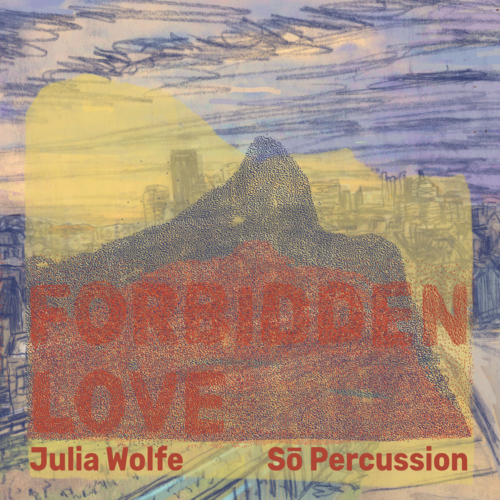Soundmaking ep 86: Julia Wolfe & Sō Percussion – Forbidden Love




Sometimes, all you need is a little push. In the fall of 1976, when Julia Wolfe arrived at the University of Michigan from Pennsylvania, she was just 17 and viewed herself as a “wild teenager” with her sights on social sciences and politics. Activism was a possible path. Music wasn’t on her radar.
But one day, a friend coaxed Wolfe into taking a peculiar music class, taught by a forward-thinking Quaker who didn’t care how much you knew about composing…
continue readingBy David Ng
When you win a Pulitzer Prize for music, you hear about it just like everyone else — in the news perhaps, or from other people who read about it before you do.
You don’t know anything, said composer Julia Wolfe, who won the coveted award last year for her choral piece Anthracite Fields, an unconventional exploration into the history of coal mining in rural Pennsylvania.
Wolfe recalled that she was at home in her Tribeca loft, working with colleagues from the Bang on a Can ensemble, when a call came in from Washington, DC…
continue readingJulia Wolfe descended hundreds of feet underground, into a dank, dark cavern with gleaming black walls: a Pennsylvania coal mine.
“You can’t believe people spent all day there,” Wolfe recalled Tuesday. “It was spooky, a little bit, but so fascinating, a strange kind of beauty.”
Wolfe’s visit helped inspire “Anthracite Fields,” a choral tribute to the state’s mining heritage – and, now, winner of the Pulitzer Prize in music. The judges described her work as a “powerful oratorio for chorus and sextet evoking Pennsylvania coal-mining life around the turn of the 20th Century.”
“I’m a little stunned,” Wolfe, a music professor at New York University, said a day after her win…
continue readingThe music of Beethoven and Bach gets a lot of attention in the Berkshires every summer. But amid the more august offerings, there is a musical collective that wants to rip the powdered wig off traditional classical music. Playing the work of living composers, and using unconventional methods, they are interested in anything but a musical history lesson.
Leading a string ensemble of about twenty musicians an hour before their public recital, conductor Brad Lubman gives his players an unusual criticism—they sound too polished, clean, locked in with each other…
continue readingListen to Julia Wolfe’s interview with students at the Columbia School of Journalism.
Read more… Watch Julia Wolfe’s Composer Portrait Preview from Miller Theatre [video:vimeo.com/18956950]
By Allan Kozinn
Like most composers, Julia Wolfe is often in two places at once psychically: working on new pieces (with working defined as anything from cogitating and experimenting to actually putting the notes on paper) but also seeing that the backlist is getting attention. In recent weeks she has been putting the finishing touches on “Iron Maiden,” a new solo work for the percussionist Evelyn Glennie, and working on “Combat de Boxe,” for the Asko Ensemble of the Netherlands…
continue reading